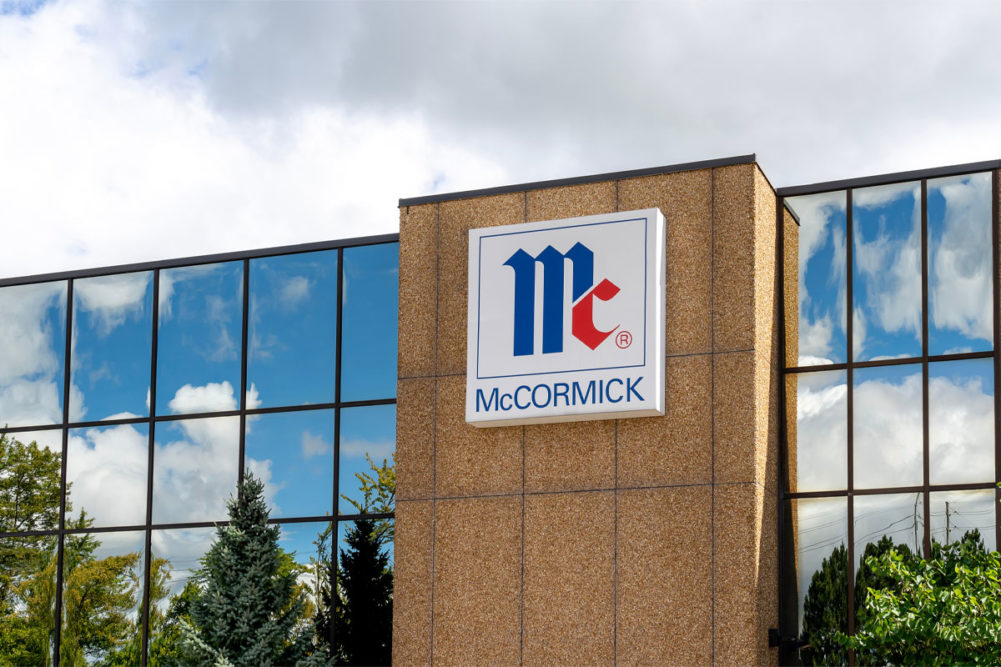HUNT VALLEY, MD. — McCormick & Co. is rightsizing its business to improve profitability. The company is targeting $75 million in cost savings in fiscal 2023 and streamlining its workforce will play a role.
“A large component of our streamlining actions is a US voluntary retirement program, which is very far along with a targeted separation date of Feb. 1,” said Lawrence E. Kurzius, chairman and chief executive officer, during a Jan. 26 conference call to discuss fiscal 2022 results. “This will be followed by other actions, some of which will be involuntary.”
McCormick & Co. also has invested in automation to reduce its manufacturing workforce.
“We expect through these initiatives to reduce 10% of our Americas supply chain workforce,” Mr. Kurzius said. “And over the past three months, we have already achieved half of the planned reduction.”
He added that in McCormick’s Consumer segment the company has been using copackers for specific packaging formats such as large, value-size items.
“Now given the efficiencies gained and the investments already in flight, we have started to repatriate some of these formats,” he said. “Overall, we are on track for co-pack spending in 2023 to be the lowest in the past five years.”
For fiscal 2022, ended Nov. 30, 2022, McCormick’s net income was $682 million, equal to $2.54 per share on the common stock, down nearly 10% from $755 million the year before, or $2.83 per share.
Fiscal year sales ticked up to $6.35 billion from $6.32 billion in fiscal 2021.
Issues that plagued the company throughout the year included the rising costs of goods sold, supply chain challenges and difficulties navigating China’s shifting COVID-19 policies.
“In 2022, with the service levels (a) focus, the normalization of our supply chain costs and inventory levels have taken longer than expected,” Mr. Kurzius said.
During the fourth quarter the company earned $186 million, or 69¢ per share, down 5.6% from $197 million, or 74¢ per share.
Quarterly sales dipped to $1.7 billion from $1.73 billion the year before.
“Our fourth quarter concluded a challenging and volatile year that impacted our ability to deliver on our expectations and our financial performance,” Mr. Kurzius said.
McCormick’s Consumer business unit, its largest, saw its sales decline 8% during the fourth quarter to $1.04 billion. Segment operating profit fell 6% to $235 million from $250 million the year before.
The sales decline was attributed to lower volume and product mix, an unfavorable impact from divesting the Kitchen Basics business and a negative impact from lower consumption in China due to COVID-related disruptions.
“… Excluding China, consumption trends strengthened, particularly in the US, where our fourth quarter total branded consumption grew 6%,” Mr. Kurzius said.
In the Flavor Solutions segment, quarterly sales increased 9% to $658 million. Segment operating profit fell to $43 million from $58 million in fiscal 2021. The sales increase was driven by price increases, according to the company.
“While our Flavor Solutions sales growth has been outstanding, we are not delivering profit growth in this segment,” Mr. Kurzius said. “We are committed to restoring Flavor Solutions profitability, recovering margin, while ensuring we keep our customers in supply and driving growth for both McCormick and our customers.”
He highlighted three steps the company will take to improve Flavor Solutions profitability, including price increases that catch up to the pace of inflation, reducing supply chain inefficiencies and investments in capacity.
In fiscal 2023, McCormick is guiding sales growth to be in a range of 5% to 7%. Price increases will be the primary driver of that growth, the company said.
Operating income is forecast to grow 10% to 12% from $864 million in fiscal 2022. The company expects to incur a charge of approximately $50 million in special charges related to its streamlining actions.
“We expect our adjusted operating profit growth will be partially offset below operating profit by significantly higher interest expense and a higher projected effective tax rate,” said Michael R. Smith, chief financial officer.
Mr. Smith added that operating profit growth will be pressured in the first quarter, accelerate in the second quarter and return to a normal pace for the remainder of the year.
“The impact of cost inflation will be weighted toward the first half of 2023, with peak inflation in the first quarter,” he said. “Also in the first quarter, we expect continued pressure to sales and profit from COVID-related disruptions in China and then the benefit beginning in the second quarter from lapping last year's impact.”
Earnings per share are expected to fall to between $2.42 and $2.47 per share. The company said special charges are expected to impact its fiscal 2023 share price.





